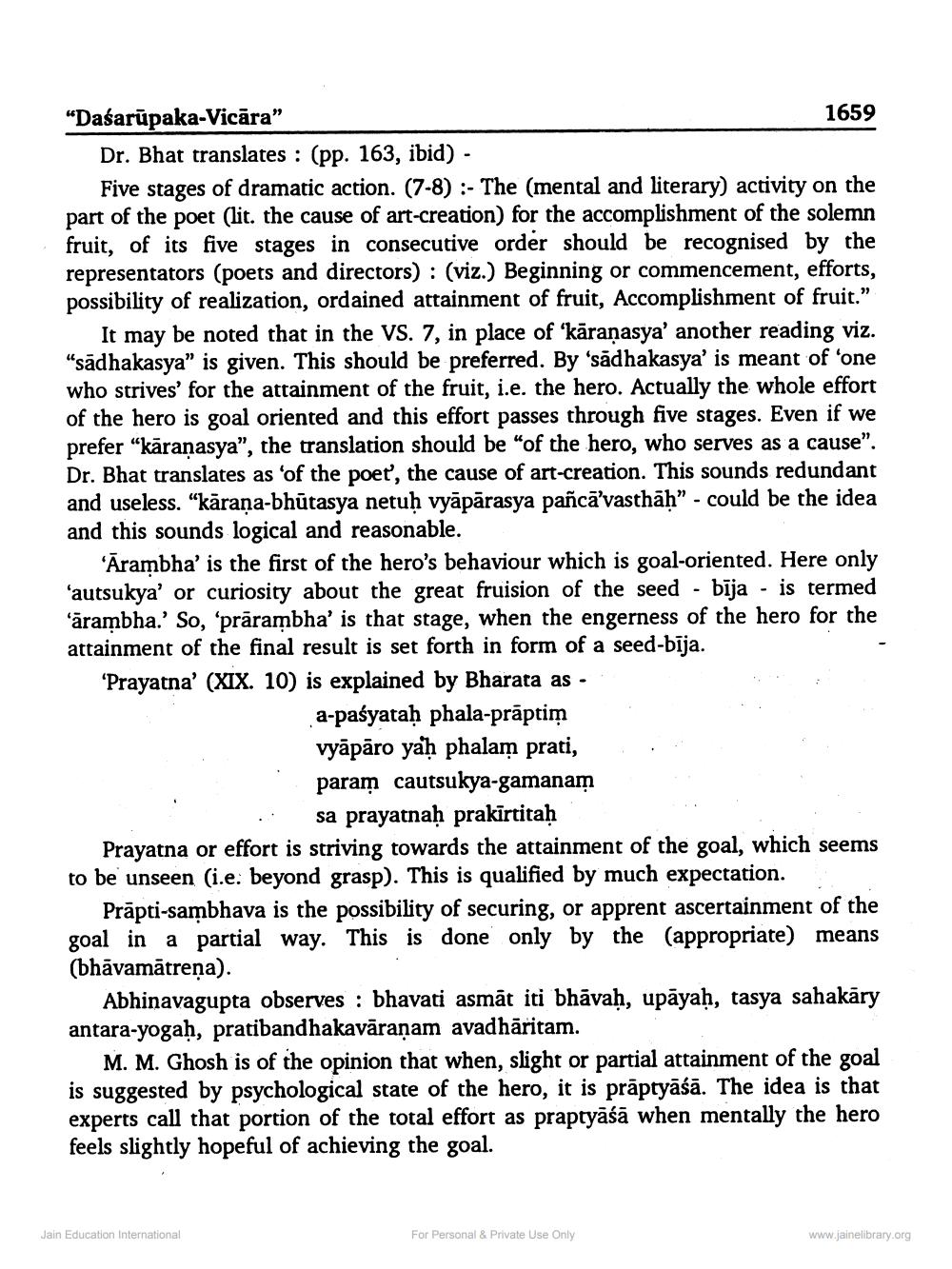________________
"Dasarūpaka-Vicăra"
1659 Dr. Bhat translates : (pp. 163, ibid) -
Five stages of dramatic action. (7-8) :- The (mental and literary) activity on the part of the poet (lit. the cause of art-creation) for the accomplishment of the solemn fruit, of its five stages in consecutive order should be recognised by the representators (poets and directors): (viz.) Beginning or commencement, efforts, possibility of realization, ordained attainment of fruit, Accomplishment of fruit."
It may be noted that in the VS. 7, in place of 'kāraṇasya' another reading viz. "sādhakasya" is given. This should be preferred. By 'sadhakasya' is meant of 'one who strives' for the attainment of the fruit, i.e. the hero. Actually the whole effort of the hero is goal oriented and this effort passes through five stages. Even if we prefer "karanasya", the translation should be "of the hero, who serves as a cause". Dr. Bhat translates as ‘of the poet, the cause of art-creation. This sounds redundant and useless. "kārana-bhūtasya netuh vyāpārasya pañcā'vasthāh" - could be the idea and this sounds logical and reasonable.
'Arambha' is the first of the hero's behaviour which is goal-oriented. Here only 'autsukya' or curiosity about the great fruision of the seed - bīja - is termed ārambha.' So, 'prārambha' is that stage, when the engerness of the hero for the attainment of the final result is set forth in form of a seed-bīja. 'Prayatna' (XIX. 10) is explained by Bharata as -
a-paśyataḥ phala-prāptim vyāpāro yaḥ phalam prati, param cautsukya-gamanam
sa prayatnaḥ prakīrtitaḥ Prayatna or effort is striving towards the attainment of the goal, which seems to be unseen (i.e. beyond grasp). This is qualified by much expectation.
Prāpti-sambhava is the possibility of securing, or apprent ascertainment of the goal in a partial way. This is done only by the appropriate) means (bhāvamātrena).
Abhinavagupta observes : bhavati asmāt iti bhāvaḥ, upāyaḥ, tasya sahakāry antara-yogaḥ, pratibandhakavāraṇam avadhāritam.
M. M. Ghosh is of the opinion that when, slight or partial attainment of the goal is suggested by psychological state of the hero, it is prāptyāśā. The idea is that experts call that portion of the total effort as praptyāśā when mentally the hero feels slightly hopeful of achieving the goal.
Jain Education International
For Personal & Private Use Only
www.jainelibrary.org




